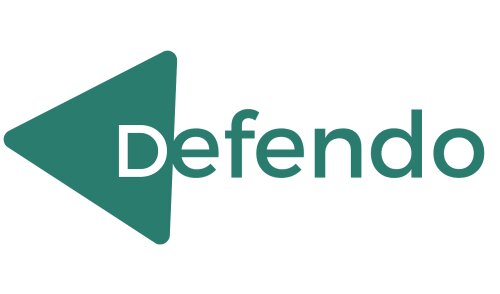Best Real Estate Lawyers in Santiago
Share your needs with us, get contacted by law firms.
Free. Takes 2 min.
Free Guide to Hiring a Real Estate Lawyer
List of the best lawyers in Santiago, Chile
About Real Estate Law in Santiago, Chile
Santiago, the capital city of Chile, has one of the most dynamic real estate markets in South America. The city offers a wide range of residential and commercial properties, ranging from apartments and houses in urban neighborhoods to office spaces and industrial land. Real estate transactions in Santiago are governed by national legislation, with some local regulations administered by municipal authorities. Understanding the legal framework is crucial for both Chilean residents and foreigners interested in buying, selling, renting, or developing property in Santiago.
Why You May Need a Lawyer
Hiring a legal professional is highly recommended when dealing with real estate matters in Santiago. Some common situations where you may benefit from legal assistance include:
- Purchasing or selling property, to ensure the transaction is secure and all documentation is in order
- Drafting or reviewing lease and rental agreements
- Resolving boundary or ownership disputes
- Conducting due diligence to confirm property titles, encumbrances, or debts
- Understanding and navigating zoning laws and land use regulations
- Managing inherited real estate or succession matters
- Handling evictions or tenant disputes
- Participating in real estate development or investment projects
A lawyer can safeguard your interests, clarify complex aspects of Chilean property law, and help avoid costly mistakes.
Local Laws Overview
Real estate in Santiago is regulated by several key laws and codes, mainly the Civil Code, the Urban Law (Ley General de Urbanismo y Construcciones), and local municipal regulations. Some particularly relevant aspects include:
- Property Registration: All real estate transactions must be registered with the Chilean Real Estate Registry (Conservador de Bienes Raíces). This provides legal certainty regarding ownership and rights over the property.
- Foreign Ownership: Non-residents are allowed to purchase and own property in Chile, with the same rights as Chilean citizens, subject to some restrictions mainly related to border areas.
- Taxes: Real estate transactions are subject to various taxes, including VAT on some new properties, stamp tax, and annual municipal property tax (contribuciones).
- Lease Laws: Landlords and tenants are both protected by laws specifying the rights, responsibilities, and eviction procedures. Lease agreements should ideally be in writing and registered for additional legal security.
- Zoning and Permits: Construction and property use are controlled by zoning regulations and require permits from the local municipality.
It is important to verify all legal aspects, as failure to comply can result in financial loss or legal disputes.
Frequently Asked Questions
What documents are required to buy a property in Santiago?
Typically, you will need a valid identification document, a Chilean tax ID (RUT), the property title, a certificate of encumbrances and prohibitions, and a municipal certificate indicating current tax payments. A notarial deed and registration at the Real Estate Registry are also required.
Can foreigners own real estate in Santiago?
Yes, foreigners can own property in Santiago and throughout Chile. The process is similar for residents and non-residents, although a local tax ID (RUT) must be obtained.
How are real estate transactions finalized?
Transactions are formalized by signing a notarized public deed, followed by registration with the Conservador de Bienes Raíces. Only after registration does the buyer become the legal owner.
What taxes apply to real estate transactions?
Most property transactions are subject to a stamp tax and, in some cases, VAT (IVA) if a new property is being sold by a construction company. Annual municipal taxes (contribuciones) apply to all properties.
Are there restrictions on renting property?
Landlords must comply with lease laws, including maximum deposits and eviction procedures. Residential and commercial leases have different requirements and protections.
What happens if there are outstanding debts on a property?
Debts such as unpaid property taxes or utility bills may transfer with the property if not cleared during the transaction. It is essential to verify and resolve these before purchasing.
How do I check a property’s legal status?
You can request documents like the Certificate of Domain, Certificate of Liens and Prohibitions, and up-to-date payments certificate from the Real Estate Registry and local municipality.
What should I know about buying property in a community or condominium?
Communities are governed by co-ownership laws and internal regulations. It is important to review common expenses, rights, and obligations with the condominium’s administration.
How long does the process of purchasing property take?
The process usually takes a few weeks to a couple of months, depending on due diligence, financing, and registration times.
What are the risks of not using a lawyer for property transactions?
Risks include buying property with legal issues, undisclosed debts, zoning violations, or incomplete transfer of ownership, which can lead to lengthy legal disputes or financial loss.
Additional Resources
People seeking more information or assistance with real estate matters in Santiago may find the following resources helpful:
- Chilean Real Estate Registry (Conservador de Bienes Raíces de Santiago) for property registration and document requests
- Municipality of Santiago for questions regarding zoning, permits, and municipal taxes
- Chilean Ministry of Housing and Urbanism (Ministerio de Vivienda y Urbanismo) for regulations and housing programs
- Chilean Bar Association (Colegio de Abogados) for locating qualified real estate lawyers
- National Consumer Service (SERNAC) for rights and protections in real estate transactions
Next Steps
If you are considering a real estate transaction or facing any related legal issue in Santiago, the following steps are recommended:
- Gather all relevant documents related to the property
- Contact a local real estate attorney for personalized legal advice
- Request due diligence and title verification from your lawyer
- Ensure all contracts and agreements are reviewed by a legal professional before signing
- Stay informed about your rights and obligations as a property owner, tenant, or investor
Seeking timely legal counsel can help protect your investment, prevent future problems, and ensure a smooth real estate experience in Santiago, Chile.
Lawzana helps you find the best lawyers and law firms in Santiago through a curated and pre-screened list of qualified legal professionals. Our platform offers rankings and detailed profiles of attorneys and law firms, allowing you to compare based on practice areas, including Real Estate, experience, and client feedback.
Each profile includes a description of the firm's areas of practice, client reviews, team members and partners, year of establishment, spoken languages, office locations, contact information, social media presence, and any published articles or resources. Most firms on our platform speak English and are experienced in both local and international legal matters.
Get a quote from top-rated law firms in Santiago, Chile — quickly, securely, and without unnecessary hassle.
Disclaimer:
The information provided on this page is for general informational purposes only and does not constitute legal advice. While we strive to ensure the accuracy and relevance of the content, legal information may change over time, and interpretations of the law can vary. You should always consult with a qualified legal professional for advice specific to your situation.
We disclaim all liability for actions taken or not taken based on the content of this page. If you believe any information is incorrect or outdated, please contact us, and we will review and update it where appropriate.
Browse real estate law firms by service in Santiago, Chile
Santiago, Chile Attorneys in related practice areas.











